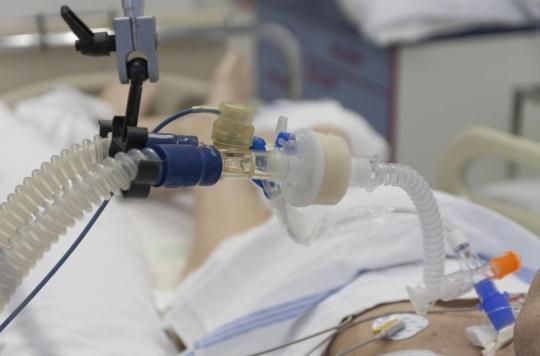The famous “cytokine storm”, presented at the start of the epidemic as responsible for the serious forms of Covid-19 would have concerned only a small proportion of cases. A new study confirms that most severely ill elderly people would rather have suffered from a weakening of their immune system.

- The “cytokine storm” would only concern 5% of fatal cases of Covid-19
- The oldest patients would rather suffer from a weakness of their immune system
With “barrier gestures” or “social distancing”, it could place itself at the top of the lexicon of the health crisis: but the “cytokine storm”, would have played only a minor role in the coronavirus crisis. It was however the most frequent explanation, the one we heard everywhere, given for the serious or even fatal forms of Covid-19: a disproportionate inflammatory reaction, a runaway immune system pouring cytokines into the body, inflammatory molecules capable of creating lesions in the tissues with terrible consequences for the organism.
A level of inflammation barely equivalent to that caused” by a strong flu
But a study published on November 13 in Science Advances and which confirms a work made public last September by the JAMA has just shown that this “cytokine storm” is in fact only responsible for a very small proportion (5% according to the study published by Science Advances) of fatal cases of Covid-19. The first study on 168 patients with a severe form of the disease even concluded that the level of inflammation was barely equivalent to that generated by a strong flu observed in these patients!
Ditto for the study published in JAMA which revealed that the level of cytokines in Covid patients treated in intensive care was lower than in patients suffering from septic shock or an acute respiratory infection.
A weakening of the immune system
But then, to what would be due the seriousness of the disease – observed mainly in the elderly – hitherto attributed to this “cytokine storm”? Well, no doubt to an exactly opposite phenomenon, ie not a runaway but a weakening of the immune system. “This virus, SARS-CoV-2, is in a way a double jeopardy for the elderly. They have a weaker immune system at the start – what is called immunosenescence, editor’s note –, so it is more easy for the virus to enter their body and grow there and when the virus starts to kill the remaining immune cells, it makes the situation even worse,” says Sean Leng, a professor of immunology at Johns Hopkins University.
These insights into the causes of the severity of Covid-19 obviously have an impact on the treatments used: anti-cytokine treatments obviously no longer seem relevant if we are not in the presence of this famous “storm” and the questions exist on the use of corticosteroids. “Directing immunosuppressive therapies to a small number of Covid patients with an overactive immune response is the only way to know if these approaches are ultimately helpful,” said one of the Science Advances study authors, Dr. Philip Mudd.

.















